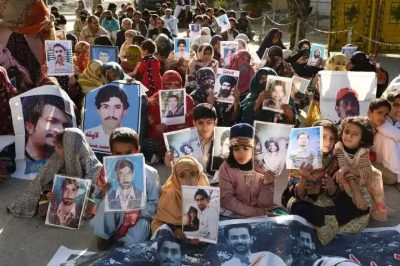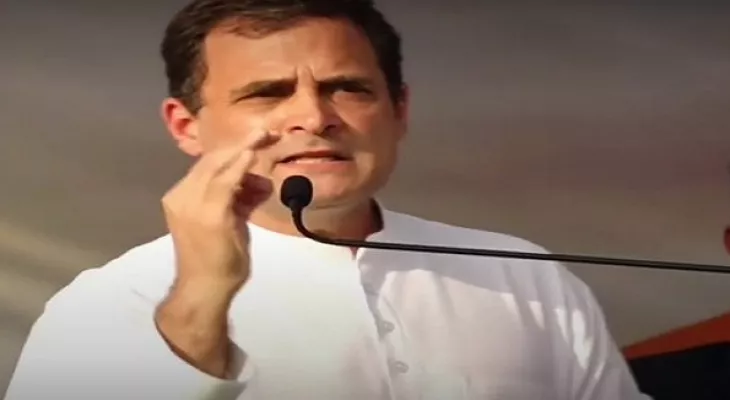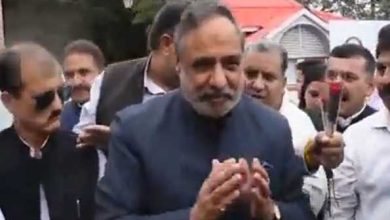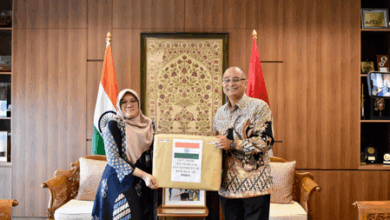Pak flare-ups a result of misgovernance, repression of people

New Delhi, Oct 3 : This week’s flare-up in Pakistan-Occupied-Jammu and Kashmir (POJK) is not one in isolation. The rise in voices of revolt from various parts of the country reflect decades of misgovernance and quixotic adventures by Islamabad.
As Islamabad grapples with widespread revolt for independence in Balochistan and unrest in Khyber Pakhtunkhwa (KP), the recent uproar has proved that freedom is not about just adding the word “azad (free)” to a state’s name.
Adding to the parody of governance is Rawalpindi’s (Army headquarters) interference in political and diplomatic matters, leaving the government in Islamabad helpless, and attending more to dirty tasks.
The dichotomy was evident in the developments witnessed in the last few weeks. In what could be the first instance in recent diplomacy, the Pakistan Army chief was at an exclusive luncheon meeting with the President of the United States.
A few days later, General Asim Munir was escorting Prime Minister Shehbaz Sharif to the White House for an 80-minute meeting, preceded by a 30-minute wait for US President Donald Trump to wrap up more important matters, which also included an exchange of light comments with the Press corp.
Even while his bosses were making forays into White House, Defence Minister Khawaja Asif admitted to Islamabad’s closer proximity to Beijing than Washington when the latter two “will always be at loggerheads”.
This illustrates the comedy of errors that takes place due to the Islamabad-Rawalpindi battle for supremacy that mostly leads to a tragedy, with deaths and destruction.
Amid uncertainties over governance, Islamabad has responded to the developing crisis by diverting thousands of additional troops and repression.
Civil society groups and international observers have condemned this heavy-handed approach. At a recent UN Human Rights Council session in Geneva, Nasir Aziz Khan of the United Kashmir People’s National Party urged the international community to intervene against what he described as Pakistan’s “growing repression” and looming humanitarian crisis in POJK.
What the beleaguered people of the region sought was access to jobs, affordable foodstuff, adequate representation in the Assembly, among others. The stir underscores the illusion of a “free” nation with a premier in Muzaffarabad, while actual control lay in hands in Islamabad-Rawalpindi.
Experts warn that such “security operations” in POJK, Balochistan, and KP, without genuine political inclusion, equitable development, and respect for human rights, will keep the unrest boiling.
Along the restive Pak-Afghan frontier, which Islamabad once used as a launchpad for Mujahideen groups, the Tehrik-e-Taliban Pakistan (TTP) and some splinter cells – once trained by Pakistan’s ISI – have turned the guns on their mentors facing a change in government policy and tactic.
In Balochistan, the Khanate of Kalat’s reluctant accession in 1948 sowed the seeds of resentment. Federal policies that followed – centralising reforms in the 1950s, suppression of a provincial government in the 1970s, and uneven revenue-sharing – cemented the process of exploitation.
Today, with the China–Pakistan Economic Corridor (CPEC) pouring billions into Gwadar port and highway projects, the Baloch are facing a form of resource colonialism. A 2017 federal accord, promising development funds and political dialogue, stumbled amid slow and few allocations and missing personnel.
Local people, say reports, seek “schools and jobs, not just another commission”. Analysts argue that without a sustained shift towards political inclusion and socio-economic investment, Pakistan risks perpetuating a costly cycle of insurgency and counter-insurgency.
(IANS)






